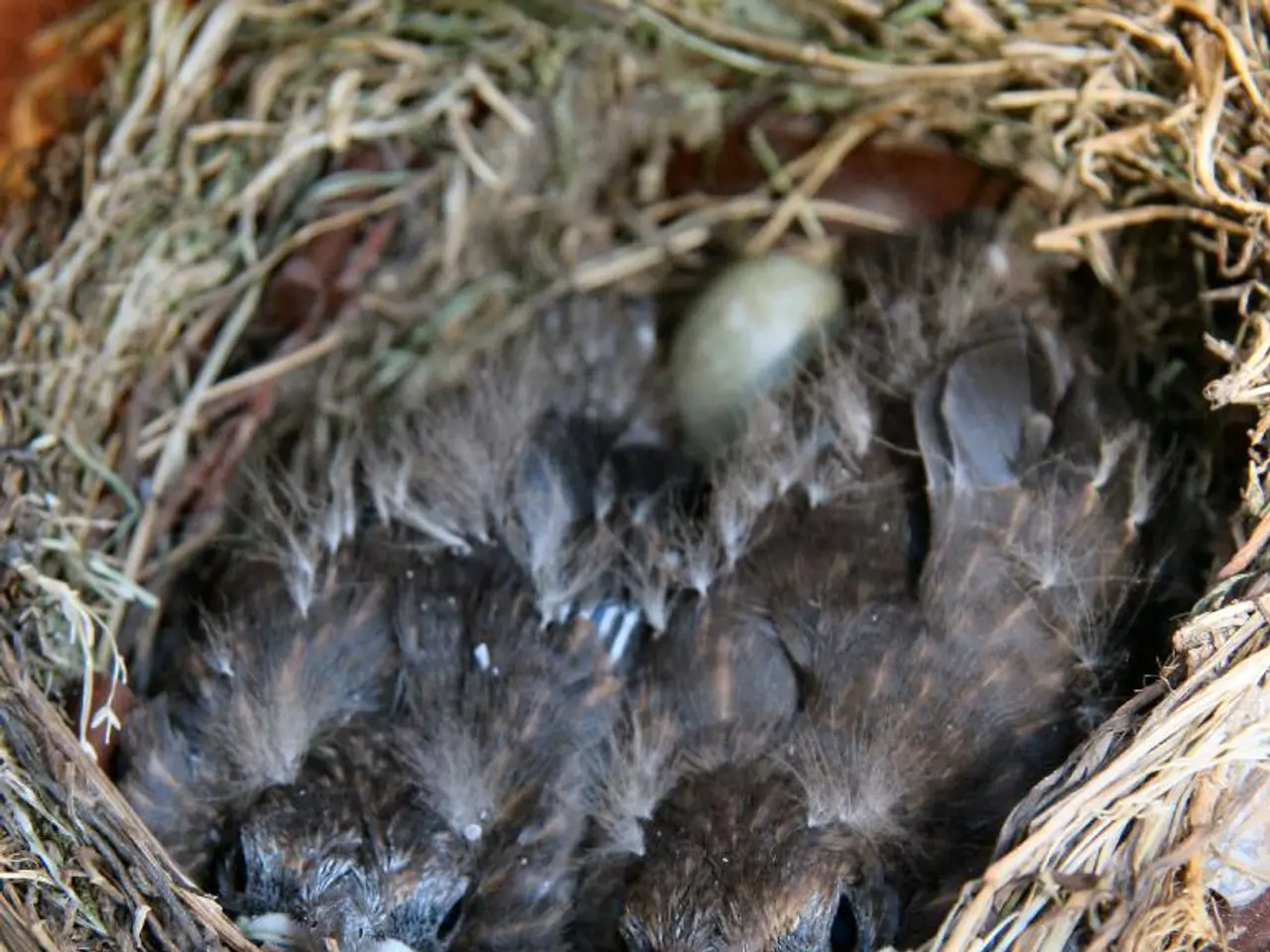Revamped Containers for Vertical Communities on Sails
Conserving Swifts in Plön: A Community-Led Initiative
In the picturesque town of Plön, Germany, an innovative project is underway to conserve the winged summer species known as swifts. The initiative, named "Artenreich Plön", is spearheaded by Ludwig Askemper, the city's environmental officer since April 2024.
The Artenreich Plön Project
The primary objective of Artenreich Plön is to promote and enhance biodiversity in the region, with a focus on raising awareness about the variety of species in Plön and implementing measures that support the protection and sustainable management of natural habitats.
Key Aspects of Artenreich Plön
- Biodiversity Promotion: Artenreich Plön emphasizes the importance of species diversity and ecosystem health in Plön, encouraging both residents and local authorities to take part in conservation efforts.
- Education and Engagement: The project organizes events, workshops, and campaigns to educate the community about native species, threats to biodiversity, and practical steps for habitat preservation.
- Habitat Protection and Improvement: Efforts include creating and maintaining natural spaces, such as meadows and woodlands, that serve as refuges for a variety of species.
- Collaboration: Artenreich Plön often works with schools, local government, environmental groups, and volunteers to maximize its impact.
Contributing to Plön's Profile
The success of the swift conservation project has not only resulted in a new generation of swifts, referred to as the class of 2025, but also serves as a role model for citizens, encouraging them to participate in similar projects. The aim is to enhance Plön's profile as a destination for nature experiences, which could help attract tourists and distinguish it from neighboring towns.
Ludwig Askemper's Vision
Ludwig Askemper, with a diverse set of competencies including a background in business administration and marketing, as well as a lifelong appreciation for animals and nature, sees potential in exploring optics, lenses, or smart hearing aids in relation to nature experiences, and connecting them to certain university degree programs and research projects.
Support for the Project
The project has received support from various entities such as the city and district of Plön, the naval petty officers' school, churches, companies, the German Association for Landscape Conservation, and local marketing association. The association aims to co-finance projects with the funds raised, which may include projects like the installation of swift boxes and bat boxes.
Innovative Approaches
To facilitate private home participation in nature conservation projects, Askemper proposes the idea of an QR code on an information board to provide instructions. The boxes were attached to the facades at a considerable height using an extendable stage provided by one of the sponsors.
Involving Companies
Askemper emphasizes the importance of involving companies in the project, as it helps to create a positive external perception and can lead to economic benefits. The water-rich city of Plön, with over 70% water, possibly more than Venice, offers a unique opportunity for businesses to align with a sustainable and eco-friendly image.
In conclusion, Artenreich Plön acts as a catalyst for biodiversity conservation in Plön through education, habitat management, and community collaboration, while also offering potential for economic growth and a positive environmental impact.
- The Artenreich Plön Project might benefit from incorporating elements of environmental-science education into its workshops and events, as this could further encourage community engagement and foster a deeper understanding of local ecosystems.
- Ludwig Askemper's vision for future collaborations with universities could potentially result in innovative research projects in the field of science, focusing on technologies that enhance nature experiences and promote education and self-development.




